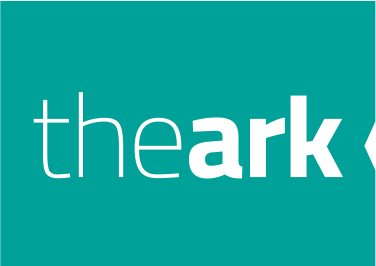
Jun 30, 2021 | Comment, Data Cleansing, Deceased Identification, GDPR, Goneaway Identification, Identity Fraud, National Deceased Register, Re-mover
Martin Jaggard, Managing Director of The Ark
Oxfordshire-based data specialist – The Ark – has been accredited after passing the Data & Marketing Association (DMA) rigorous and thorough compliance audit process. Membership of the DMA is an endorsement that The Ark is a dedicated and responsible marketer.
The Ark – which was created in 2003 – is the market-leader in helping companies of all sizes combat identity fraud and ensuring that they comply with legal regulations including GDPR. Its services include the National Deceased Register (NDR) – the country’s most accurate and reliable deceased identification file and Re-mover Goneways – which captures over 90% of all movers in the UK.
All DMA members are subjected to a lengthy and evidence-driven process before receiving accreditation. In the case of The Ark, it looked for evidence of its understanding of GDPR and how it was applied to the creation of identification files. It also focussed on the due diligence The Ark undertook for each data source it uses. All data companies offering PII data have to undergo this audit once every 3 years. The DMA comprises the Data and Marketing Association and the Institute of Data & Marketing (IDM) and represents over 1,000 members across the UK’s data and marketing landscape.
“The updated compliance process ensures that DMA Members continue to work to the highest standards, and that Membership remains a badge of accreditation that can be trusted in a data-driven world” commented DMA Managing Director, Rachel Aldighieri.
The Ark Managing Director, Martin Jaggard is delighted to be recognised by the DMA “Identity fraud is the UK’s fastest growing crime and with our existing products and those in development, we are in pole position to help our clients combat the threat. We are pleased that the DMA has recognised The Ark as dedicated, responsible marketers. We have worked through the COVID-19 pandemic to ensure that our clients have received faultless service and look forward to their, and indeed our continued success for the rest of this year and into the next”.

Nov 11, 2016 | Comment, National Deceased Register
Some marketers seem determined to make contact with the other side, offering credit cards, discounts and special offers to the deceased. It would be an incredible achievement on the part of the marketer to get any take up on the campaign from someone who is no longer living, so why do some companies not remove the deceased from their mailing lists?
There is a potential issue of fraud and identity theft here; reports of direct mail being sent to people who have died appear in the media with alarming regularity, and according to a study conducted by Wilmington Millennium with ex-offenders, 79% of these people believed that identity theft was an easy way to obtain cash fraudulently. Fraudsters intercept credit card offers and similar pieces of direct mail after checking obituaries or graveyard activity, and use these details to open credit accounts and run up a huge bill using the personal details of someone who has died. This is very distressing to the relatives of the deceased, as they are left to deal with the authorities alongside the bereavement process.
As well as the issue of criminal activity related to these erroneously sent communications, there is also the issue of negative impact on the reputation of a company that continues to mail out to the deceased. Elderly relatives that lived in a family home will have played a very important part in daily family life, and to be reminded of that loss with every piece of direct mail can be distressing for the family left behind. Dealing with unsubscribing from these companies’ mailing lists will not be a priority for the family, so the responsibility for managing the removal of the deceased from the mailing lists rests firmly with the marketer. When you consider that around two thirds of people would not consider dealing with a company that has sent direct mail to a deceased relative, it is even more important to get a removal process in place.
Companies whose products and services are aimed at the elderly have a much greater responsibility than most to get this right, as their database will have a higher proportion of deceased contacts (and goneaways where the elderly person has moved into a residential or nursing home) than most. Charities are especially susceptible to a high rate of deceased records due to the older average age of their donors, so proactively managing the suppression process and managing final communications can improve the brand image, whilst addressing the need for removing the deceased and goneaways from their databases. Charities can take the opportunity to pay tribute to a valuable donor; an action that can provide comfort for the relatives in a distressing time and potentially recruit new donors to continue the good work that was funded by the late donor. It is a sensitive issue, but when managed correctly can lead to more donors, and a positive reinforcement of the brand image.
Using up to date deceased contact lists is not an onerous task and the small effort required to make sure the database is cleansed against this list, far outweighs the potential negatives of leaving people on there that can no longer receive or read mail. With that in mind, can any organisation really afford to overlook such a simple, yet important component of data hygiene strategy?


